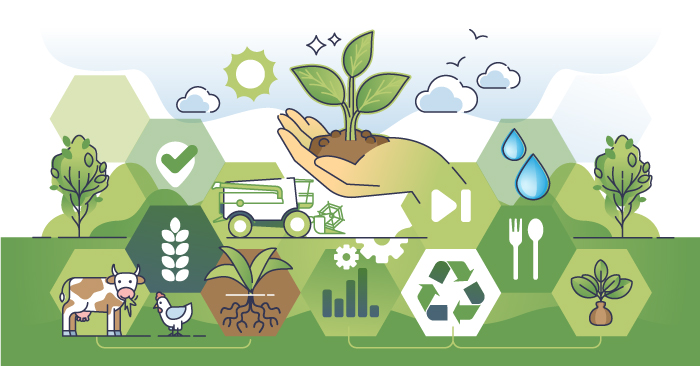Biodiversity as a driver of sustainable transformation in Latin America and the Caribbean

On 19 December 2022, a potentially landmark agreement for multilateral environmental aspirations was reached with the adoption, under the aegis of the Convention on Biological Diversity (CBD), of the new Kunming-Montreal Global Biodiversity Framework (Kunming-Montreal Framework or Global Biodiversity Framework) and other accords as a transformative roadmap for the current decade to curb biodiversity loss and environmental degradation.
The new Kunming-Montreal Framework to align global, regional, national and subnational commitments and efforts is of the utmost importance for Latin America and the Caribbean, one of the world’s most biologically and culturally rich regions, which face enormous social, economic and environmental challenges. The biodiversity crisis is one of today’s greatest planetary crises and is interrelated with other cascading crises and challenges, including climate change, worsening poverty and inequality, social and geopolitical conflicts and health-related risks. The disconnect between economic growth and social and environmental well-being also requires structural changes that integrate the three interdependent pillars of sustainable development, whose transformative potential lies in combining the economic, social and environmental dimensions (Harris and others, 2023).
For this reason, we devote this bulletin to a review of the contributions of biodiversity to the region’s development and well-being and to the new multilateral biodiversity Framework recently adopted; it is estimated, for example, that “environmental income” from forest and non-forest extraction in rural households in the region accounts for 31% of total income, a higher proportion than in any other region of the world. The bulletin reviews the context of the negotiations, the main strengths and challenges of the new Global Biodiversity Framework, the rights-based approach, synergy between the Framework and the 2030 Agenda for Sustainable Development, the potential contribution of the United Nations economic regions in promoting the cross-sectoral mainstreaming of biodiversity and the potential contribution of the Economic Commission for Latin America and the Caribbean (ECLAC) to addressing the main biodiversity challenges in Latin America and the Caribbean.
Article selection
Number
Publication type
Natural Resources in Latin America and the CaribbeanEditorial commitee
Economic Commission for Latin America
and the Caribbean (ECLAC)
Natural Resources Division
Editorial committee:
Jeannette Sánchez, Mauricio León, Adrián Rodríguez and Rayén Quiroga
Overall coordination:
Marina Gil and Marcia Tambutti
Contributors to the main article:
MMarcia Tambutti and Víctor Alvarado. The authors thank Alejandra Duarte, a consultant with Expertise France, for her contributions to image 2
Contributors of other inputs:
Silvia Saravia, Marina Gil, Andrés Mondaini and Orlando Reyes
The authors express their thanks for the cooperation extended under the 2021–2022 cooperation programme between the Republic of Korea and ECLAC, through component 2, on nature-based solutions and the sustainable use of biodiversity (consultancy on analysing existing national economic stimulus programmes for mainstreaming biodiversity in Latin America and the Caribbean as a tool for its sustainable use and for the implementation of the post-2020 global biodiversity framework).
Natural Resources in Latin America
and the Caribbean
Bulletin No. 5, December 2023
ISSN digital version 2709-0213
Copyright © United Nations, December 2023
All rights reserved.
Contact:
drn@cepal.org